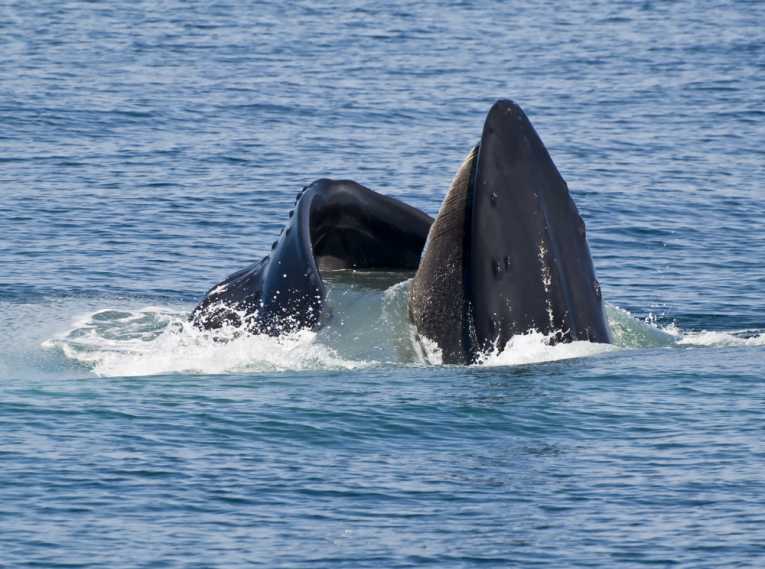How much would you pay to save a whale from the clutches of a whaling ship? That's the provocative question being asked by three US environmental scientists, in this week's Nature. In their commentary, they propose that the deadlock at the International Whaling Commission (IWC) could be broken by bringing the market to bear - replacing the ban on whaling with tradable quotas for whale catches. That would allow the three whaling nations (Iceland, Norway and Japan) to drop the fig-leaf pretense of 'scientific whaling', and legally resume their whale-hunting ways.
The twist in the tale for conservationists? These sustainable quotas would be up for sale; so conservation bodies like the Whale and Dolphin Conservation Society could buy them too. In effect, conservation groups could use their resources to literally save whales from whalers - but by paying whalers for their quotas, rather than opposing them on the high seas. It's a controversial idea; one that has dropped something of a bombshell among the whale conservation movement.
Conservationist split on tradable quotas
On the one hand, Mike Sweeney, the Californian director of The Nature Conservancy, has welcomed the attempt to break the current stalemate 'The authors have put forth some bold, fresh thinking aimed at a barbaric practice that has become an intractable problem.' Since the moratorium on whaling in 1986, the number of whales being killed has gradually risen, and now stands at some 2,000 per year. So, even with whale-hunting ostensibly 'on pause', whales are still dying by the thousand.
On the other side, the potential for a rejuvenated, and re-legitimized, market in whale-meat has plenty of others riled. They see it as throwing a lifeline to an immoral industry, which is on a long-term decline anyway. Phil Kline, from Greenpeace, told the Washington Post about his worries, that the whale-product market would grow outside any quota system. 'It would be safe to assume illegal whaling would flourish if a legal whaling trade was set up,' he said.

Vacuum packed whale meat via Shutterstock
Under the proposed scheme, there appears to be scope for both outcomes. It could be that whalers would be tempted by the prospect of making money-for-nothing, and would sell-on most of their sustainable quotas. That might see the whaling industry whither and die, as it is effectively paid-off for stopping the hunt. Alternatively, the industry could hold onto its its quotas, and use them to feed and grow the market for whale-meat - while pushing for greater 'sustainable' quotas each year. Whale-hunting, and eating, could become more, not less, entrenched.
Cogs of the market - how will they grind?
Because the proposed scheme leaves whaling nations free to dispose of the quotas assigned to them, it would mean they are no longer constrained by the non-whaling majority - as they are now, in the IWC deadlock. Instead, the 'market' would determine the outcome. But the power of marketing men, to create and grow human wants, can't be overlooked. Whale-hunting is opposed by most on moral and emotional grounds - a very humane sense of empathy with these intelligent giants of the sea. For many, the question boils down: do we really want to leave their future to the dispassionate cogs of the market?










